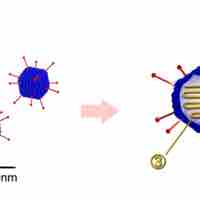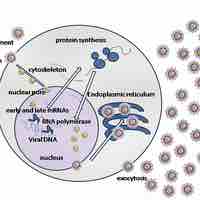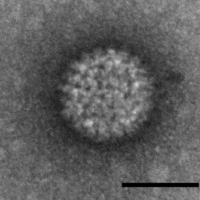Section 11
DNA Viruses in Eukaryotes
By Boundless

DNA viruses are relatively rare in plants, but are responsible for a significant amount of crop damage worldwide.

Most double-stranded DNA viruses replicate within the host cell nucleus.
Herpes viruses cause a wide range of latent, recurring infections including oral and genital herpes, cytomegalovirus, and chicken pox.

Herpes simplex virus attaches to a host's cells with viral envelope glycoproteins, which then allows entry of the viral capsid into the host cell.
Herpes replication entails three phases: gene transcription, viral assembly in the nucleus, and budding through the nuclear membrane.
Immunodeficiency occurs when the immune system cannot appropriately respond to infections.

The poxviruses are a family of large, complex, enveloped DNA viruses that infect a variety of vertebrate and invertebrate hosts.

Adenoviruses are non-enveloped, icosahedral DNA viruses which cause upper respiratory infections, primarily in children.

Hepadnaviruses, retroviruses, use virally encoded reverse transcriptase to convert RNA into DNA.

Interferons play pivotal roles in shaping the immune responses in mammals.